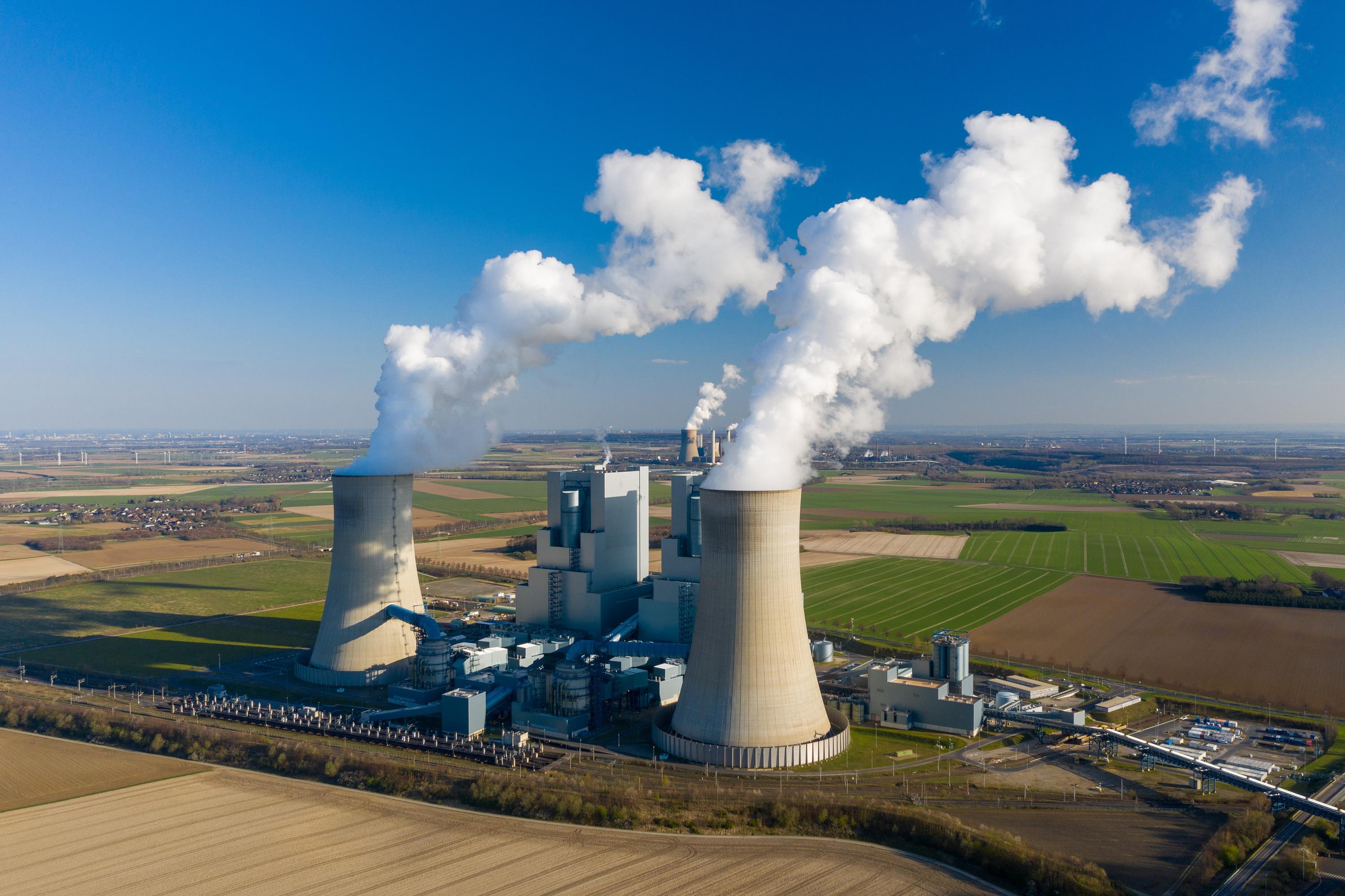After being adopted on March 27 by the Sustainable Development Committee, the bill aimed at “protecting the population from the risks linked to PFAS”, commonly called “eternal pollutants”, will be defended by the environmental group EELV before the National Assembly this Thursday, April 4. The initiative is supported by MP Nicolas Thierry who, during his speech before the committee, was indignant at the “exposure suffered” by populations while “scientists consider that these substances represent a serious risk to health ".
These PFAS, or per- and polyfluoroalkyl substances, are chemical compounds widely used in industry but also present in many everyday products such as non-stick coatings on kitchen utensils, food packaging, household products and textiles. . “Because they are difficult to degrade naturally or using powerful degradation techniques (incineration, ultrasound irradiation), they persist for decades in the environment. », Explains Xavier Coumoul, professor of toxicology at the University of Paris Cité. Capable of accumulating in soil, water, food and biological tissues, their omnipresence has become a major concern due to their harmful effects on human health and ecosystems. Several PFAS are notably associated with various hormonal and liver disorders and fertility problems, while some have been classified as “carcinogenic” by the International Agency for Research on Cancer. Among them, PFOA and PFOS have been banned in the European Union since 2020 and 2009 respectively.
Faced with the risks linked to exposure to this family of pollutants (comprising 4000 to 9000 compounds), environmental MPs want to have them banned once and for all. In its version presented to the assembly, the bill envisages banning "the manufacture, import, export and placing on the market of products containing PFAS", from 2026 for all products to food use, cosmetics and wax (product to improve the glide of skis). For the rest of the products containing PFAS, the decision is left to the European regulation which has initiated a procedure to establish restrictions on a larger scale.
Article 1 also proposes to integrate certain PFAS into the health control of the quality of drinking water, in response to the excess of eternal pollutants found in French tap water. The second article supports the establishment of the polluter pays principle, "so that the industrialists responsible for the pollution contribute financially to the clean-up", by paying a fee to the water agencies.
Supported by associations such as Générations futures, the bill does not, however, seem to convince all elected officials, particularly those from the majority and the right, who wish to extend the ban deadlines. Opponents also regret that no distinction is made between PFAS, the harmful effects of which are proven, and other compounds. On the eve of the examination of the law, Jean-Marc Zulesi, president of the sustainable development commission, told Le Figaro that he found it "important that we can ensure that the proposed law is adopted within the framework of a compromise found with the majority, in particular on the subject of postponing the entry into force of the ban on PFAS in kitchen utensils to 2030, as proposed in the amendment by MP Cyrille Isaac-Sibille. »
For their part, industrialists did not wait to express their anger. As a sign of protest, many unions and employees of the household appliances group SEB, of which the Tefal company is a part, came to the National Assembly on the eve of the examination of the proposal. “Nearly 3,000 jobs are threatened and the future of the Tefal company is in danger. By providing for the ban on PFAS in kitchen utensils, an entire French industrial sector may be forced to disappear,” underline the main Tefal union organizations in a press release. The household appliance giant claims not to use PFAS considered harmful to health or the environment in the manufacture of its products, including the famous Tefal frying pans. It's all about wear and tear, scientists warn. As recently as 2022, researchers warned of a potential carcinogenic effect in the event of degradation of Teflon non-stick coatings (PTFE) present on the surface of pots and pans, a compound in theory banned since 2020 within the 'European Union.

 Russia: schools will train children to use drones at the start of the school year
Russia: schools will train children to use drones at the start of the school year Austria: incestuous torturer Josef Fritzl, nicknamed the “national monster”, could soon be released
Austria: incestuous torturer Josef Fritzl, nicknamed the “national monster”, could soon be released An airline continues to treat a centenarian as a one-year-old baby
An airline continues to treat a centenarian as a one-year-old baby Germany: the trial of nine “Citizens of the Reich” conspirators begins this Monday
Germany: the trial of nine “Citizens of the Reich” conspirators begins this Monday Sánchez cancels his agenda and considers resigning: "I need to stop and reflect"
Sánchez cancels his agenda and considers resigning: "I need to stop and reflect" The Federal Committee of the PSOE interrupts the event to take to the streets with the militants
The Federal Committee of the PSOE interrupts the event to take to the streets with the militants Repsol: "We want to lead generative AI to guarantee its benefits and avoid risks"
Repsol: "We want to lead generative AI to guarantee its benefits and avoid risks" Osteoarthritis: an innovation to improve its management
Osteoarthritis: an innovation to improve its management Sanofi: demonstration in front of Paris headquarters against job cuts
Sanofi: demonstration in front of Paris headquarters against job cuts The Chinese car manufacturer BYD sets out to conquer France
The Chinese car manufacturer BYD sets out to conquer France Public finances: after the deputies, Bruno Le Maire asks the senators for savings avenues
Public finances: after the deputies, Bruno Le Maire asks the senators for savings avenues Faced with opposition from London, a fund supported by Abu Dhabi abandons the purchase of the Daily Telegraph
Faced with opposition from London, a fund supported by Abu Dhabi abandons the purchase of the Daily Telegraph Omar Sy on all cultural fronts
Omar Sy on all cultural fronts Jacques Audiard, Swann Arlaud, Benjamin Stora... A hundred men from cinema, theater and books in support of
Jacques Audiard, Swann Arlaud, Benjamin Stora... A hundred men from cinema, theater and books in support of Resale, scams and fake tickets: how not to get scammed before Taylor Swift concerts
Resale, scams and fake tickets: how not to get scammed before Taylor Swift concerts Isild Le Besco is not ready to file a complaint against Benoît Jacquot
Isild Le Besco is not ready to file a complaint against Benoît Jacquot Omoda 7, another Chinese car that could be manufactured in Spain
Omoda 7, another Chinese car that could be manufactured in Spain BYD chooses CA Auto Bank as financial partner in Spain
BYD chooses CA Auto Bank as financial partner in Spain Tesla and Baidu sign key agreement to boost development of autonomous driving
Tesla and Baidu sign key agreement to boost development of autonomous driving Skoda Kodiaq 2024: a 'beast' plug-in hybrid SUV
Skoda Kodiaq 2024: a 'beast' plug-in hybrid SUV The home mortgage firm rises 3.8% in February and the average interest moderates to 3.33%
The home mortgage firm rises 3.8% in February and the average interest moderates to 3.33% This is how housing prices have changed in Spain in the last decade
This is how housing prices have changed in Spain in the last decade The home mortgage firm drops 10% in January and interest soars to 3.46%
The home mortgage firm drops 10% in January and interest soars to 3.46% The jewel of the Rocío de Nagüeles urbanization: a dream villa in Marbella
The jewel of the Rocío de Nagüeles urbanization: a dream villa in Marbella Europeans: a senior official on the National Rally list
Europeans: a senior official on the National Rally list Blockade of Sciences Po: the right denounces a “drift”, the government charges the rebels
Blockade of Sciences Po: the right denounces a “drift”, the government charges the rebels Even on a mission for NATO, the Charles-de-Gaulle remains under French control, Lecornu responds to Mélenchon
Even on a mission for NATO, the Charles-de-Gaulle remains under French control, Lecornu responds to Mélenchon “Deadly Europe”, “economic decline”, immigration… What to remember from Emmanuel Macron’s speech at the Sorbonne
“Deadly Europe”, “economic decline”, immigration… What to remember from Emmanuel Macron’s speech at the Sorbonne These French cities that will boycott the World Cup in Qatar
These French cities that will boycott the World Cup in Qatar Bayern Munich-Real Madrid: in video, all the goals from the C1 clash
Bayern Munich-Real Madrid: in video, all the goals from the C1 clash Ligue 1: Zaire-Emery, Yoro, Roy, Griezmann... The others nominated for the UNFP Trophies
Ligue 1: Zaire-Emery, Yoro, Roy, Griezmann... The others nominated for the UNFP Trophies Bayern Munich-Real Madrid: in video, the magnificent tifo in tribute to Franz Beckenbauer
Bayern Munich-Real Madrid: in video, the magnificent tifo in tribute to Franz Beckenbauer Ayrton Senna: 30 anecdotes that you (perhaps) don't know about the Brazilian who died thirty years ago
Ayrton Senna: 30 anecdotes that you (perhaps) don't know about the Brazilian who died thirty years ago
















